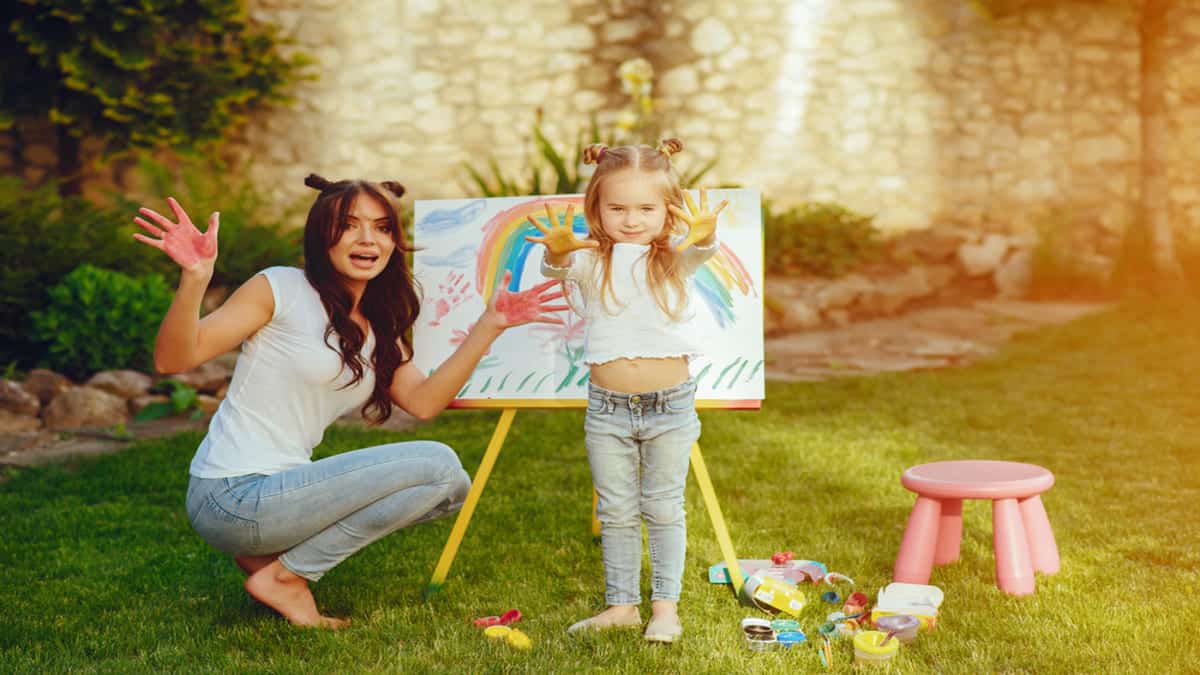Every child is a unique blend of talents and abilities. Recognizing and nurturing these talents can lead to a fulfilling and successful life. But how do you identify and foster these unique traits? This article will guide you through the process.
Recognizing Talents

| Talent Area | Common Signs or Behaviors |
|---|---|
| Music | Shows interest in musical instruments, responds to rhythms, enjoys singing |
| Art | Loves drawing, painting, or sculpting, appreciates colors and shapes |
| Sports | Exhibits physical agility, enjoys outdoor games, shows interest in specific sports |
| Mathematics | Enjoys solving puzzles, shows curiosity in numbers and patterns |
| Writing | Creates stories, enjoys reading, expresses thoughts through writing |
| Science | Asks questions about nature, experiments with objects, shows curiosity in how things work |
| Drama | Enjoys role-playing, expresses emotions through actions, interested in storytelling |
Signs of Unique Talents
Children often display their talents in subtle ways. Observing your child’s behavior, interests, and preferences can reveal hidden talents.
Are they drawn to music, art, sports, or mathematics? Do they enjoy solving puzzles, painting, or playing a musical instrument? These inclinations can be the first signs of a unique ability. It’s essential to pay attention to these signs and encourage them without imposing your interests or expectations.
Observing Behavior
Watching how your child interacts with different activities and subjects is a crucial step in recognizing their talents.
Their natural curiosity and enthusiasm might lead you to their hidden talents. For example, a child who loves to dismantle toys might have a mechanical inclination. A child who enjoys storytelling might have a talent for writing or drama. Observing these behaviors without judgment allows the child to express themselves freely, leading to a better understanding of their unique abilities.
Asking Questions
Engaging your child in conversations about their interests can be enlightening. Asking open-ended questions like “What did you enjoy about this activity?” or “How did you feel when you were doing that?” can help you understand what truly excites them.
These conversations can provide insights into their passions and talents, allowing you to support them more effectively.
Encouraging Exploration
Allowing your child to explore various activities is vital in recognizing their unique talents. This freedom can help them discover what they are passionate about.
Whether it’s sports, arts, science, or literature, encouraging exploration without pressure allows the child to find their path. It’s about creating an environment where they can try new things, fail, learn, and grow.
Understanding your child’s unique talents is just one part of fostering their overall development. Equally essential is encouraging healthy social skills, which form the foundation for successful interactions in their personal and professional lives. For a deeper insight into this, you may want to read our article on “Promoting Healthy Socialization for Kids: A Guide for Parents.
Nurturing Talents

Creating a Supportive Environment
Providing a safe and encouraging space for your child to explore their talents is foundational. Your support, understanding, and encouragement can make a significant difference in their development. It’s not just about praising success but also about supporting failures and learning from them.
This nurturing environment fosters self-confidence and resilience.
Providing Resources
Investing in tools, classes, or materials that align with your child’s interests can help them hone their skills. Whether it’s art supplies, musical instruments, sports equipment, or educational apps, these resources can provide the necessary support for talent development.
Encouraging Practice
The saying “practice makes perfect” holds true. Encourage regular practice without pressuring them, making the process enjoyable rather than a chore. It’s about finding the balance between discipline and fun, creating a routine that fosters growth without stifling creativity.
While understanding and fostering your child’s individual talents is very important, the broader parenting approach you adopt plays a significant role in their overall development. To gain a comprehensive insight into how different parenting styles can shape a child’s growth and behavior, take a look at this in-depth article on Uncovering the Different Parenting Styles and Their Effects on Children.
Building Confidence

Positive Reinforcement
Celebrating achievements, no matter how small, can boost confidence. Positive reinforcement through praise, rewards, or simply showing interest in their progress encourages continued effort and builds self-esteem.
Setting Achievable Goals
Helping your child set realistic and achievable goals fosters a sense of accomplishment. These goals should be challenging yet attainable, promoting growth without causing frustration or burnout.
Fostering Creativity

Encouraging Experimentation
Allowing your child to experiment, take risks, and make mistakes is vital for creative growth. It’s about creating a space where failure is seen as a learning opportunity rather than a setback.
Providing Opportunities
Exposing your child to different opportunities that align with their interests can further develop their talents. Whether it’s joining clubs, attending workshops, or participating in community events, these experiences can enrich their understanding and mastery of their unique talents.
By recognizing and nurturing your child’s unique talents through observation, encouragement, support, and creativity, you pave the way for a fulfilling and successful future. It’s a journey filled with discovery, growth, joy, and challenges, but one that can be incredibly rewarding for both you and your child.
The Role of Schools

Choosing the Right School
Selecting the right school is a critical decision in nurturing your child’s unique talents. Look for institutions that not only focus on academic excellence but also encourage individuality and creativity.
Schools with specialized programs, extracurricular activities, and teachers trained to recognize and foster unique talents can provide an environment where your child’s abilities can thrive. Visiting schools, talking to teachers, and understanding their philosophy can help you make an informed decision.
Involvement in School Activities
Schools often offer various activities that can align with your child’s interests, such as art clubs, sports teams, science fairs, or music programs. Encouraging participation in these activities can allow your child to explore and develop their talents further.
It’s not just about excelling but also about enjoying the process, making friends, and learning valuable life skills like teamwork and responsibility.
Communicating with Teachers
Maintaining open communication with teachers is essential to ensure that your child’s talents are being nurtured in the classroom. Regular meetings, emails, or even informal chats can keep you informed about your child’s progress and any opportunities or challenges they may face.
Teachers can be valuable allies in recognizing and fostering talents, so building a collaborative relationship with them can be highly beneficial.
The Role of Technology

Utilizing Online Resources
In today’s digital age, online resources can be a valuable tool in nurturing talents. From YouTube tutorials to specialized online courses, forums, and communities, the internet offers a plethora of opportunities to learn and grow.
Whether your child is interested in coding, painting, writing, or playing an instrument, there are platforms and tools designed to support their journey. It’s about finding the right resources that align with their interests and learning style, providing them with the flexibility to learn at their own pace.
Monitoring Screen Time
While technology offers immense benefits, it’s essential to monitor screen time to ensure a balanced development.
Excessive screen time can lead to issues like eye strain, lack of physical activity, or social isolation. Setting boundaries and encouraging a mix of online and offline activities can create a healthy balance.
It’s not about restricting technology but using it wisely, integrating it into a broader learning experience that includes physical play, social interactions, and other forms of exploration.
FAQs – Recognizing and Nurturing Your Child’s Unique Talents
How Can I Recognize My Child’s Talents at an Early Age?
Recognizing talents at an early age involves keen observation and an open mind. Watch your child’s behavior, interests, and reactions to different activities.
Are they drawn to music, art, puzzles, or physical activities? Do they show a natural ability or interest in something specific? Engaging them in various activities and observing their response can reveal hidden talents. It’s about creating an environment where they feel free to explore and express themselves, allowing their natural inclinations to surface.
What If My Child Has Multiple Interests?
Having multiple interests is a sign of curiosity and creativity. Encourage exploration and experimentation without forcing them to choose one path. They may find a passion in one area or combine interests into a unique talent.
For example, a love for science and art might lead to an interest in scientific illustration. It’s about supporting their journey, understanding that interests may evolve, and that having multiple interests is a strength, not a confusion.
How Can Schools Help in Nurturing Talents?
Schools play a vital role in nurturing talents through specialized programs, extracurricular activities, and individualized support. Teachers trained to recognize and foster unique abilities can provide guidance and encouragement.
Schools that value creativity and individuality offer platforms for children to explore and develop their talents. Collaborating with teachers, choosing the right school, and encouraging participation in school activities can create a supportive educational environment for talent development.
Is Technology a Boon or Bane in Nurturing Talents?
Technology, when used wisely, can be a valuable tool in nurturing talents. Online tutorials, forums, apps, and communities offer access to resources and expertise that might not be available locally. It allows for personalized learning at the child’s pace.
However, it’s essential to balance online and offline activities, ensuring that technology enhances rather than hinders development. Monitoring screen time, choosing quality content, and integrating technology into a broader learning experience can make it a boon rather than a bane.
How Can I Ensure That I’m Not Pressuring My Child?
Ensuring that you’re not pressuring your child involves a delicate balance between encouragement and expectation. Focus on supporting their interests rather than imposing your desires or societal pressures.
Maintain open communication, asking for their feelings and opinions and respecting their choices. Celebrate effort and progress rather than just success, and create a positive, enjoyable learning environment. It’s about being a guide and cheerleader rather than a taskmaster, fostering a love for learning and growth rather than fearing failure.
Wrapping Up Recognizing and Nurturing Your Child’s Unique Talents
Recognizing and nurturing your child’s unique talents is a rewarding journey that requires patience, observation, and encouragement. It’s about creating an environment where they can explore and grow, providing the right resources, and collaborating with schools and teachers.
Ultimately, it’s about empowering them to reach their full potential, fostering happiness, fulfillment, and self-realization. With love, understanding, and support, you can guide your child on a path filled with passion, purpose, and success.
